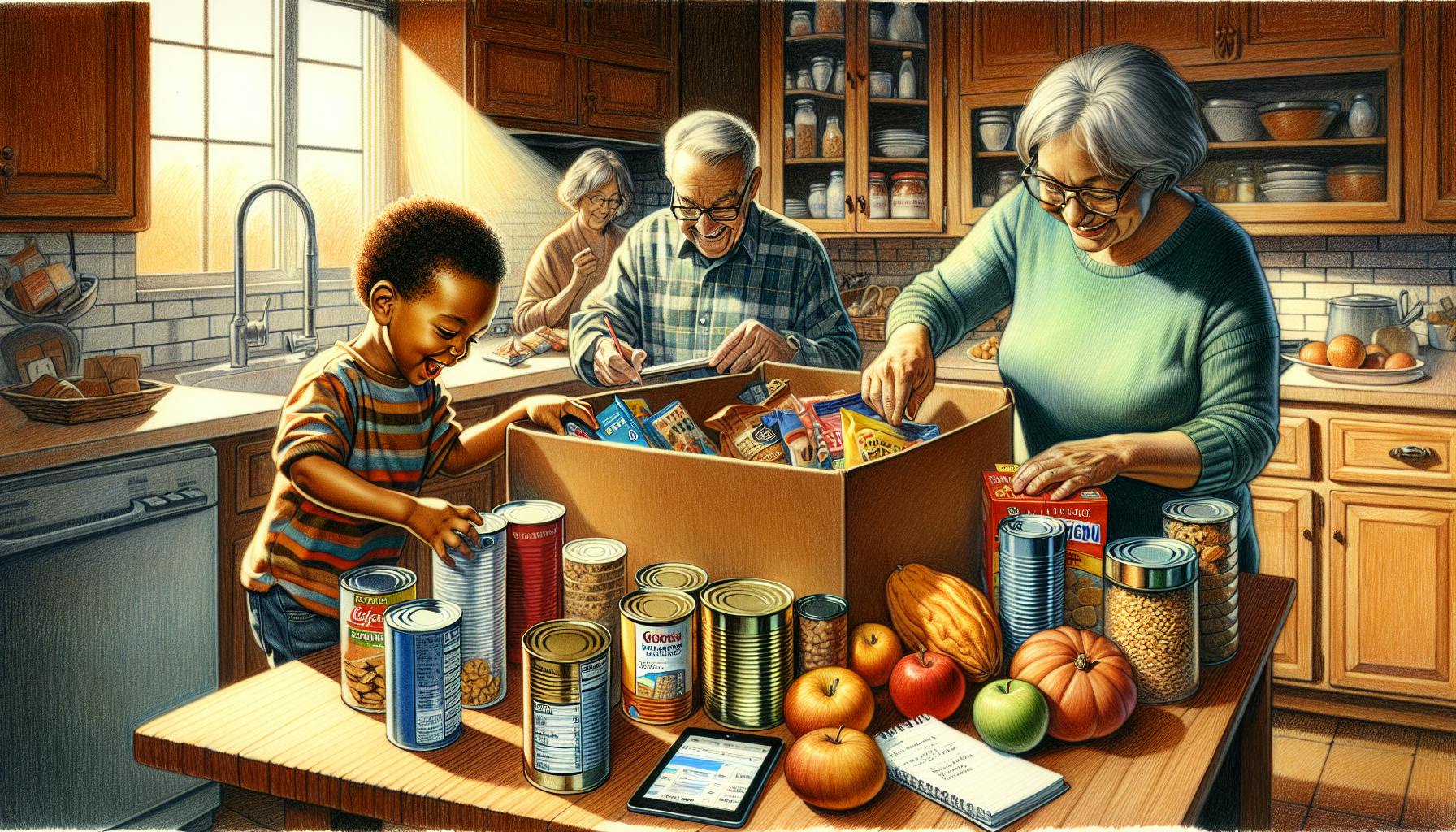Introduction
Being prepared with ample food reserves is a critical component of emergency readiness. For preppers, canned goods are the best option for stocking up thanks to their extended shelf lives of 2-5 years when properly stored in a consistently cool, dark place around 50-70°F. This allows for maximum freshness retention. Keeping canned foods in temperature controlled conditions away from sunlight prevents premature spoilage. Proper stock rotation using the first in, first out method also prevents wastage of older cans in your stockpile. With the right storage techniques, one can amass a diverse long-term pantry of nutritious canned foods to sustain a household for months at a time during emergencies. Canned goods are portable, affordable and provide peace of mind knowing you have reliable food reserves. This article will identify some of the canned foods with the longest shelf lives for prepping.
Canned Meats
- Spam, corned beef, Kirkland canned chicken and other processed canned meats can remain edible 2-5 years when kept unopened in a cool, dry pantry around 50-70°F.
- Canned tuna and salmon like Chicken of the Sea and Bumble Bee generally last 2-3 years before quality loss if properly stored at stable, moderate temperatures.
- Canned chicken can keep for up to 5 years if stored in cool conditions between 40-70°F and kept dry.
- Meats in sauce or gravy like Campbell's chunky soup chili and Beefaroni fare better than plain canned meats, lasting 1-2 years unopened.
- Canned ham and Vienna sausages have a shelf life of 2-5 years when stored in temperature-controlled conditions.
Canned Beans
- Most canned beans including black, pinto, kidney, cannellini beans can last 3-5 years if kept around 50-70°F or below.
- Baked beans and other beans canned in sauce tend to last 1-2 years due to higher sugar content.
- Rinsing canned beans with clean water before storage can extend shelf life by preventing corrosion.
- Avoid cans with any signs of swelling, leaks, or contamination.
- Use the first in, first out system to rotate stock and utilize older cans first.
Canned Fruits and Vegetables
- High acid fruits like Del Monte pineapple, canned peaches, mandarin oranges, etc. can last 2-5 years stored properly.
- Low-acid vegetables like Green Giant carrots, canned potatoes, canned peas, corn, etc. keep 2-3 years before quality loss.
- Canned tomatoes like Hunt's last 12-18 months due to acidity if kept below 75°F.
- Blanching and freezing extra produce from your garden allows enjoying it year-round.
- Opt for canned fruit packed in juice rather than sugary syrup to maximize shelf life.
Tips for Storing Canned Goods
- Store cans in a consistently cool, dry place around 50-70°F. Avoid temperature fluctuations.
- Keep cans away from direct sunlight, garages, attics and other hot spots.
- Wrap or contain cans in plastic to protect from rust and corrosion.
- Arrange cans with oldest in front to ensure first in, first out rotation.
- Inspect each can for dents, swelling, leaks before opening.
- Discard any cans with signs of spoilage or contamination.
Best Practices for Rotating Stock
- Use cans with oldest expiration dates first based on the first in, first out system.
- Date cans with marker upon receipt for easy tracking.
- Designate a specific area for new canned good acquisitions.
- Take inventory of cans 1-2 times per year and organize.
- Donate any surplus cans nearing expiration to food banks annually.
- Consider freeze drying extra garden produce to enjoy year-round.
Other Long-Lasting Canned Goods
- Properly stored canned soups, broths, and chilies like Campbell's last 2-3 years.
- Unopened canned milk like Carnation can keep 2-5 years if stored in cool, dry conditions.
- Canned nuts and nut butters are good for 1-2 years after opening.
- Canned sardines, oysters, and other seafood last 3-5 years.
- Canned pasta, rice, grains, and beans store 5+ years.
Tips for Enjoying Canned Foods
- Rinse canned beans, vegetables, and meats before cooking or eating.
- Incorporate canned tuna and chicken into casseroles, salads, sandwiches.
- Make hearty chili, soups, and stews with canned meats.
- Use canned fruits for smoothies, baked goods, compotes, and jams.
- Try canned coconut milk and spices like curry for flavorful recipes.
Safety Considerations
- Never eat from cans that are leaking, rusted, or bulging.
- Avoid cans with severe dents on rim or seams.
- Discard heavily rusted cans as contents may be contaminated.
- Botulism risk is low but deadly - carefully inspect cans before opening.
- Wash hands and surfaces thoroughly after handling cans as a precaution.
Conclusion
Having a stockpile of canned meats, fish, beans, fruits, vegetables and more provides peace of mind for preppers. With proper storage around 50-70°F and diligent stock rotation, canned goods can reliably last 2-5 years for emergency preparedness. Carefully inspecting cans for damage prior to opening ensures safety. With the right habits, you can amass a diverse pantry of nutritious, affordable canned foods with the longest shelf lives for sustaining your household during emergencies and achieving self-reliance.


